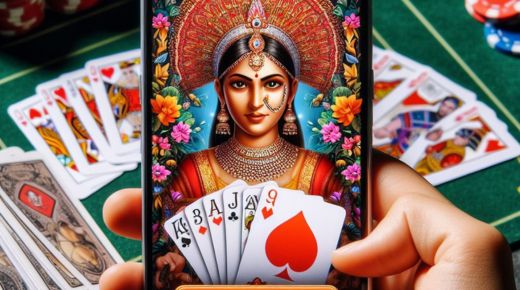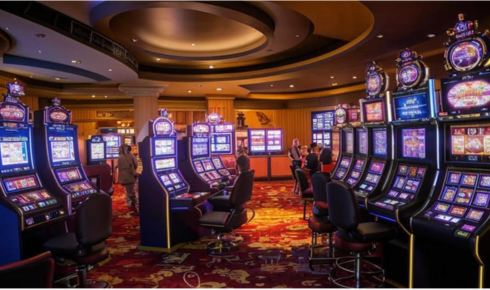Poker, a game known for its blend of strategy and skill has made significant inroads into the Indian gaming landscape over the past few decades. While its origins can be traced back to the United States, poker has evolved into a vibrant part of Indian culture, reflecting the country’s rich history and diverse influences. This blog will explore the fascinating cultural journey of the Indian poker game, examining how it has transformed from a niche hobby into a mainstream phenomenon that captivates millions.
The Historical Roots of Poker in India
The journey of Poker in India is intertwined with the history of card games in the country. Card games have been played in India for centuries, with some references dating back to ancient texts. Traditional games like Teen Patti and Rummy have long been popular, often played during festivals and social gatherings. These games laid the groundwork for poker’s acceptance, as they share similar mechanics and strategic elements.
The introduction of poker to India can be attributed to British colonial influence in the 19th century, where card games became a popular pastime among the elite. Over time, poker began to take root in Indian society, eventually leading to its incorporation into various gaming platforms.
The Rise of Online Poker
With the advent of the internet, poker saw a meteoric rise in popularity in India. Online poker platforms began to emerge in the early 2000s, allowing players to enjoy the game from the comfort of their homes. This shift not only made poker more accessible but also introduced the game to a younger audience.
As online poker gained traction, it attracted players from diverse backgrounds, including college students, professionals, and housewives. The allure of competing against players from around the world, coupled with the possibility of winning real money, transformed poker into a serious endeavour for many.
Cultural Adaptation and Local Flavour
One of the most intriguing aspects of poker’s journey in India is its ability to adapt and resonate with the local culture. Indian poker enthusiasts have introduced unique elements to the game, blending traditional practices with contemporary strategies.
– Poker has become a popular choice for social gatherings, similar to how we play Teen Patti during festivals and family get-togethers. Home games, where friends and family come together for friendly competition, have fostered a sense of community and camaraderie among players.
– The rise of poker in India has been significantly bolstered by the involvement of celebrities and influencers. Prominent figures in Bollywood and sports have endorsed the game, elevating its status and appealing to a broader audience. Their participation in tournaments and promotional events has added a glamorous touch to the poker scene, making it more appealing to the masses.
Tournaments and Competitive Scene
The growth of poker in India has also led to the establishment of prestigious tournaments that attract players from across the country and beyond. Events like the India Poker Championship and the Deltin Poker Tournament have become major highlights on the gaming calendar, offering significant prize pools and recognition.
These tournaments not only showcase top talent but also contribute to a burgeoning poker culture in India. They provide aspiring players with opportunities to hone their skills and gain exposure to the international poker scene. As a result, India has started to make its mark on the global poker map, with players competing in prestigious international events.
Legal Landscape and Responsible Gaming
As poker continues to gain popularity in India, the legal landscape surrounding the game has evolved. While poker is classified as a game of skill in many jurisdictions, the regulatory framework varies across states. Some regions have embraced online poker, while others have imposed restrictions.
This evolving legal landscape emphasises the importance of responsible gaming practices. Poker enthusiasts are encouraged to play responsibly while enjoying the thrill of the game. Promoting awareness and responsible gaming initiatives is crucial for the sustainable growth of poker in India.
The Future of Poker in India
The future of poker in India looks promising, with the game poised for further growth and expansion. As technology continues to advance, online poker platforms are likely to become even more sophisticated, offering immersive experiences for players. Mobile gaming, in particular, is expected to play a pivotal role in bringing poker to new audiences.
Moreover, the continued acceptance of poker as a legitimate and respected form of entertainment will pave the way for more tournaments, sponsorships, and collaborations with international poker organisations. This evolution will further enhance the cultural significance of poker in India, solidifying its place in the gaming landscape.
Conclusion
The cultural journey of Indian poker is a testament to the game’s ability to adapt and thrive in diverse environments. From its historical roots to its current status as a mainstream pastime, poker has become an integral part of Indian culture, reflecting the country’s rich tapestry of traditions and modern influences.
As poker continues to grow in popularity, it will undoubtedly inspire a new generation of players, fostering a deeper appreciation for the game and its strategic nuances. Whether you are a casual player or a serious competitor, the world of poker in India offers a thrilling and enriching experience that goes beyond the cards.




